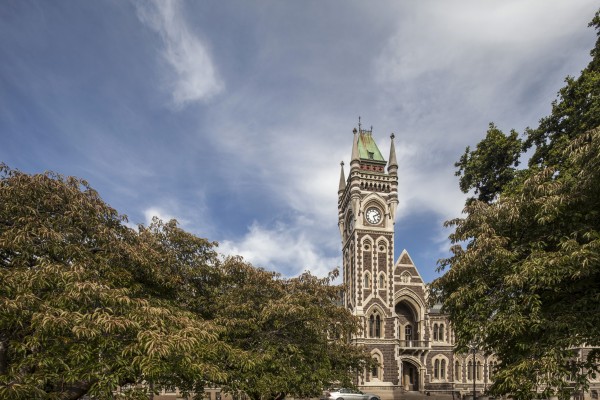A scathing review of “conduct and culture” in the School of Physical Education, Sport and Exercise Sciences has found serious concerns about “systemic racism, discrimination and bullying at the School and… within the [wider] University”. In response, new Vice-Chancellor Professor David Murdoch has promised that “creating transformational change in response to this report has the highest priority for me.”
The review was set up in January 2021, in response to allegations raised by Te Koronga, a kaupapa Māori research and teaching rōpu within the PE School. According to a statement, in August 2021, they “took a peaceful stand against systemic racism by peacefully removing ourselves and relocating our offices, work and study spaces… to maintain our mana and those of the communities we represent”.
According to an all-staff e-mail from the VC, the review was set up in response to “staff members raising serious concerns with senior leadership” throughout 2021. The review was conducted by Dr Darryn Russell, the CEO of the Heretaunga Tamatea Settlement Trust and former Assistant Vice-Chancellor Māori, Pacific and Equity at the University of Canterbury. The review found “allegations of systemic racism, discrimination and bullying at the school are upheld… [and went] beyond the Māori focus (from a racism lens) [to] affect other under-represented groups in the School with evidence of discrimination and bullying.”
The review pointed out the problems went far beyond the PE School, with “allegations of systemic racism, discrimination and bullying… within the Uni” also upheld. According to the review, “the institutional structures, processes and policies set up to address culture and behaviour issues have failed staff over a long period of time.” In particular, “the authority, empowerment and resources to lead, mediate and enact the Māori academic agenda is not anywhere at the University of Otago.”
The Human Resources Department was singled out: despite having “an awareness of these issues [they have] failed to act on these and on the allegations and consequently has lost the confidence of some people that they will be provided with a safe workplace”. Despite “articulating a commitment to Te Tiriti o Waitangi and Māori advancement,” the review argued that “the institution has failed to give effect to such statements or resource those commitments.”
In his e-mail, Prof Murdoch acknowledged that “the mamae felt by staff in this School is likely to be felt more widely throughout the University,” and that “previous attempts to address overt and covert forms of racism and discrimination throughout the University have not been satisfactory and have at times been ignored.” Thanking the contributors to the review for their “mana and leadership,” he continued by saying “failing to provide care and support for our kaimahi needs to change immediately,” before promising that “this will change, and this change will start now.”
The recommendations from the review have been “unanimously endorsed” by Prof Murdoch, the wider Senior Leadership Team and the University Council. These recommendations include reviewing the Uni’s Ethical Behaviour Policy, “address[ing] the absence of senior Māori academic leadership,” and “re-establishing that Māori Strategic Framework responsibilities and implementation must be embedded across the institution… and that all staff are engaged in its prioritisation.” It was also recommended that “resources [be provided] to support the cultural and individual safety of staff and students during this next period, post-Review.” Further recommendations to the specific PE School were raised separately with their staff, “to address the seriousness of these allegations.”
In response to the review, Associate Professor Anne-Marie Jackson, the Chair of Te Koronga, said in a statement that they would be “no longer structurally located within” the PE School, saying that “we need the ability and space to heal, to support our staff and students and continue our programmes of research and teaching excellence”. They aim to “re-ignite the discussions to create a Department of Indigenous Science, as part of the transformational actions moving forward”.
Prof Murdoch pointed out that “we are doing a number of things well,” saying it was also “important… that we remember some of the incredible feats of our Māori and Pasifika staff and students,” including record numbers of Māori and Pasifika enrolments, graduates and “two new wāhine Māori in senior leadership positions”.
Admitting that “significant structural change is needed to deconstruct systems that have consciously and subconsciously harmed groups within the University,” David struck an optimistic note, saying that it “will only continue to strengthen the University for Māori, Pasifika and the wider University whānau”. “By making these changes,” he said, “we are taking hold of an opportunity to create transformational change.” The ultimate goal of the changes would be to “provide staff throughout the University with a refuge from issues of structural or overt racism and discrimination… a place of excellence where they can thrive in their own identities.”
“Creating transformational change in response to this report has the highest priority for me as Vice-Chancellor,” he concluded. “We have a real opportunity to shape the future of the University… [and] everyone in the University has a role to play in changing our culture.” He promised that “over the coming weeks and months, you will be hearing more from me about how we progress the Review’s recommendations as a catalyst for change.”






